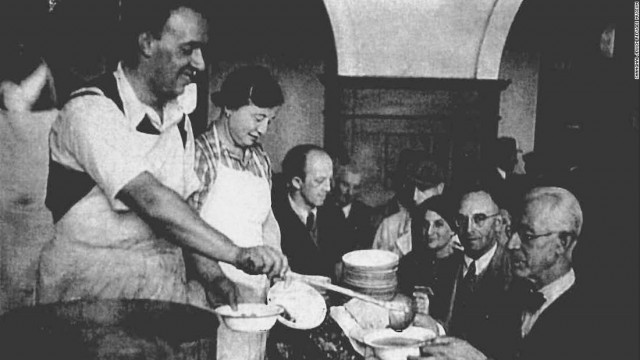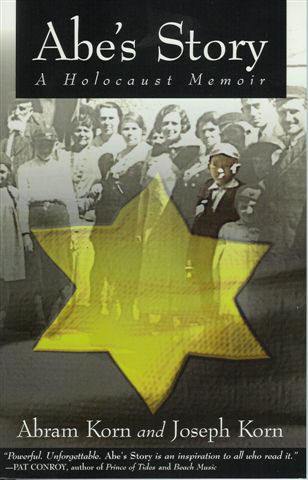- FOREWARD by Willard G. Wyman, Major General
- THE AMERICAN’S HAVE COME AT LAST by Capt. J. D. Pletcher
- THIS ACTUALLY HAPPENED …by Pfc. Norman Nichols
- THE STATES HEARD by Major Cameron Coffman
- AND AFTERWARDS … by Cpl. Jerry Tax
Gunskirchen Lager Liberation pamphlet
![]()
FOREWORD – Gunskirchen Lager
The damning evidence against the Nazi war criminals found at Gunskirchen Lager is being recorded in this booklet in the hope that the lessons learned in Germany will not soon be forgotten by the democratic nations or the individual men who fought to wipe out a government built on hate, greed, race myths and murder.
This is a true record. I saw Gunskirchen Lager myself before the 71st Division had initiated its merciful task of liberation. The horror of Gunskirchen must not be repeated. A permanent, honest record of the crimes committed there will serve to remind all of us in future years that the freedom and privileges we enjoy in a democratic nation must be jealously guarded and protected.
WILLARD G. WYMAN
Major General, USA
Commanding
“THE AMERICANS HAVE COME — AT LAST”
Capt. J. D. Pletcher, Berwyn, Ill., of the 71st Division Headquarters and Cpl. James DeSpain, Allegan, Michigan, arrived at Gunskirchen Lager the same morning the camp was found by elements of the Division. Capt. Pletcher’s account of the scenes he witnessed follows:
“When the German SS troops guarding the concentration camp at Gunskirchen heard the Americans were coming, they suddenly got busy burying the bodies of their victims — or rather, having them buried by inmates – and gave the prisoners who were still alive what they considered an extremely liberal food ration: One lump of sugar per person and one loaf of bread for every seven persons. Then, two days or a day and half before we arrived, the SS left. All this I learned from talking to inmates of the camp, many of whom spoke English. Driving up to the camp in our jeep, Cpl. DeSpain and I, first
![]()
Prisoners stream from Gunskichen as guards flee.knew we were approaching the camp by the hundreds of starving, half crazed inmates lining the roads, begging for food and cigarettes. Many of them had been able to get only a few hundred yards from the gate before they keeled over and died. As weak as they were, the chance to be free, the opportunity to escape was so great they couldn’t resist, though it meant staggering only a few yards before death came.
“Then came the next indication of the camp’s nearness – the smell. There was something about the smell of Gunskirchen I shall never forget. It was strong, yes, and permeating, too. Some six hours after we left the place, six hours spent riding in a jeep, where the wind was whistling around us, we could still detect the Gunskirchen smell. It had permeated our clothing, and stayed with us.
“Of all the horrors of the place, the smell, perhaps, was the most startling of all. It was a smell made up of all kinds of odors – human excreta, foul bodily odors, smoldering trash fires, German tobacco – which is a stink in itself – all mixed together in a heavy dank atmosphere, in a thick, muddy woods, where little breeze could go. The ground was pulpy throughout the camp, churned to a consistency of warm putty by the milling of thousands of feet, mud mixed with feces and urine. The smell of Gunskirchen nauseated many of the Americans who went there. It was a smell I’ll never forget, completely different from anything I’ve ever encountered. It could almost be seen and hung over the camp like a fog of death.
“As we entered the camp, the living skeletons still able to walk crowded around us and, though we wanted to drive farther into the place, the milling, pressing crowd wouldn’t let us. It is not an exaggeration to say that almost every inmate was insane with hunger. Just the sight of an American brought cheers, groans and shrieks. People crowded around to touch an American, to touch the jeep, to kiss our arms – perhaps just to make sure that it was true. The people who couldn’t walk crawled out toward our jeep. Those who couldn’t even crawl propped themselves up on an elbow, and somehow, through all their pain and suffering, revealed through their eyes the gratitude, the joy they felt at the arrival of Americans.
“An English-speaking inmate offered to show us around the camp. We accepted his offer. Another inmate organizer asked me if he could climb on the jeep to say a few words to his people. We helped him up on the hood and he yelled for order. He spoke in his native tongue – Hungarian I believe – and my guide interpreted far us. He was asking the inmates to remain in the camp and not clutter up the roads, some 3,000 had already left, and he wanted his fellow prisoners to help the Yanks by staying off the roads. He told them that the Americans were bringing food and water and medical help. After every sentence he was interrupted by loud cheers from the crowd. It was almost like a political speech. Everyone was hysterical with joy at being found by the Americans, yet in a frenzy of hunger, for they had had no food since the Germans left two days before, and not enough to keep anyone alive for months before.
![]()
The ground in the dank woods was sloppy.
“During the talk of the man on our jeep hood, a tall, blonde haired man approached me. He spoke excellent English. He was an engineer, educated in New York. He had committed the crime of letting Jewish blood infiltrate into his family stream some generations back. As hungry as he was for food, he was hungry for news. He said the camp inmates had known all about the movements of the Yanks for the past five days. Every day they had known we were coming closer, and as we approached, the anticipation in the stinking hole of Gunskirchen heightened. Through the last few, foodless days, the inmates had lived on faith alone, he said. Faith that the Americans would come soon. He was vitally interested in knowing about all phases of the European War. He asked about the other armies, how far they had advanced, how fast they were moving, about the Russians. He eagerly listened to all the news I could give him.
“The man on the jeep hood spoke for about five minutes. At the completion he asked the people to clear the road so that we might proceed. Many of the more energetic waved the cheering crowds back to clear a path just wide enough for our vehicle.
![]()
“Death freed this victim of tyranny.”
“All wanted to get close enough to see and many wanted to touch us as we moved slowly on. It was like a triumphal procession with the milling crowd cheering and waving their arms in exaltation.
“The thousands of prisoners had been crammed into a few low, one-story, frame buildings with sloppy, muddy floors. Those who were able had come out of the buildings, but there were hundreds left in them – the dead, the near-dead, and those too weak to move. Sometimes, my guide said, it was so crowded in the buildings that people slept three-deep on the floor, one on top of the other. Often, a man would awake in the morning and find the person under him dead. Too weak to move even the pathetically light bodies of their comrades, the living continued sleeping on them.
![]()
“The camp was littered with bodies.”
“I want to make it clear that human beings subjected to the treatment these people were given by the Germans results in a return to the primitive. Dire hunger does strange things. The inmates of Gunskirchen were a select group of prisoners — the intellectual class of Hungarian Jews, for the most part professional people, many distinguished doctors, lawyers, representatives of every skilled field. Yet, these people, who would naturally be expected to maintain their sense of values, their human qualities, longer than any others, had been reduced to animals by the treatment of the Germans – the deliberate prolonged starvation, the indiscriminate murder on little or no provocation, the unbelievable living conditions gradually brought about a change in even the strongest.
“The camp was littered with bodies. Since the Germans had left, the inmates had been unable to cope with the swiftly mounting death rate. As long as the SS men were in charge, they made the stronger inmates dig crude pits and bury the dead, not for sanitary reasons, but in an attempt to hide some of the evidence of the inhuman treatment given their prisoners.
“For the thousands of prisoners in Gunskirchen, there was one 20-hole latrine. The rule of the SS men was to shoot on sight anyone seen relieving himself in any place but the latrine. Many of the persons in the camp had diarrhea. There were always long lines at the latrine and it was often impossible for many to reach it in time because of hours spent waiting. Naturally, many were shot for they could not wait in line. Their bodies were still lying there in their own filth. The stench was unbelievable.
“Cpl. DeSpain and I both remarked later about the appearance of the inmates – that they all seemed to look alike. When men are reduced to skeletons, as these men were, they all resembled one another – the only difference being in their height and the color of their hair.
![]() Prisoners crowd around a liberator.
Prisoners crowd around a liberator.
“My guide explained that many of the new prisoners at Gunskirchen had recently been forced to march from the vicinity of Hungary to Gunskirchen. There was very little food. They died like flies. If they fell out and were too weak to continue, the SS men shot then. The air-line distance from Hungarian border to Gunskirchen is 150 miles. The intervening territory is full of mountains and winding roads, so the actual distance these people walked was far greater than 150 miles. It is not hard to imagine the thousands of skeletons that mark their route.
“The hunger in evidence is hard to imagine. We found huge animal bones in camp — the bones of a horse or cow the prisoners had found and smuggled into camp. Usually these prizes were eaten raw, the flesh torn from the bones and swallowed in great gulps.
“Rarely did a prisoner have the strength to curb his hunger long enough to cook what food he got. Outside the gate of the camp was the carcass of a horse that had been killed by shellfire. There was a great, gaping wound in his belly. As we passed it, one of the inmates was down on his knees, eating off the carcass. It had been dead several days. The next day when we came back, the whole side had been sliced away. Though our troops got food to them as soon as possible, many could not wait. Of course, we quickly gave away all the rations and cigarettes we had. It was strange to see them eat the cigarettes instead of smoking them. Not one cigarette did I see smoked. They were all swallowed in a hurry.
![]()
Hundreds of dead like these lay on the ground.
“American troops soon organized things. Water was hauled in German tank wagons. All horses and wagons in the vicinity were put on a food hauling detail. We found a German food warehouse three miles from Gunskirchen stocked with dried noodles, potatoes, soups, meats and other food. German civilians took it to Gunskirchen under the supervision of American military government personnel, and before we could establish proper control some of the prisoners had gobbled down the food, gorged themselves and died. A starving person must learn to eat all over again.
![]()
Two of the “stronger” prisoners.
“None of the inmates of Gunskirchen will ever be the same again. I doubt if any of us who saw it will ever forget it — the smell, the hundreds of bodies that looked like caricatures of human beings, the frenzy of the thousands when they knew the Americans had arrived at last, the spark of joy in the eyes of those who lay in the ditches and whispered a prayer of thanks with their last breaths. I felt, the day I saw Gunskirchen Lager, that I finally knew what I was fighting for, what the war was all about.”
End of the first of four sections





